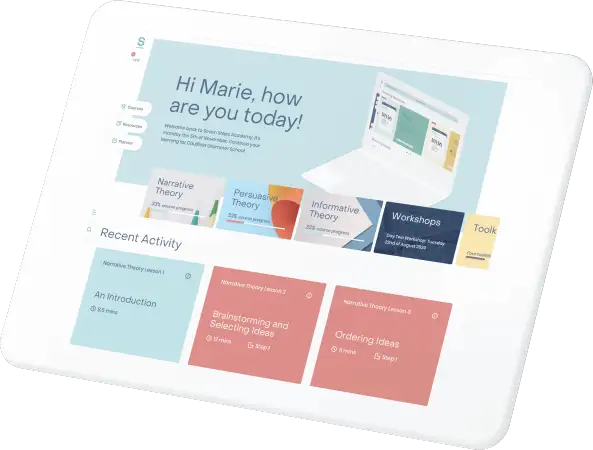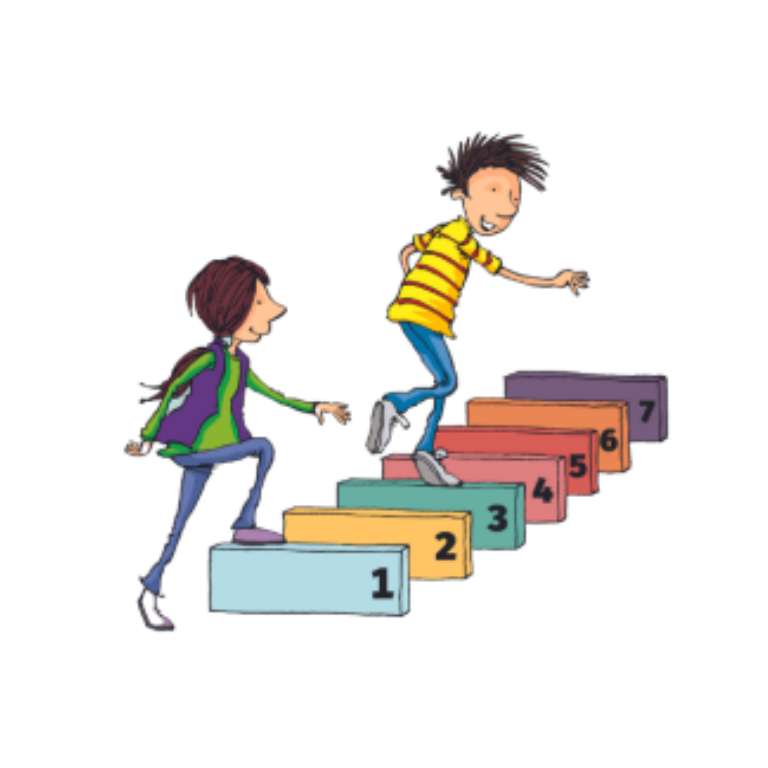Agnes Water State School have recently celebrated a huge 22% increase in writing standards following the implementation of the Seven Steps to Writing Success program at the start of last year. However, perhaps more importantly, they have also seen a 12% increase in student enjoyment of writing. According to Leigh Tankey, Head of Curriculum, ‘students were engaged and excited about lessons – they would see me in the playground and ask when their next Seven Steps lesson was’.
Student engagement has become an increasingly important part of education as a result of research demonstrating the link between students’ motivation and interest in learning, and their academic results. While schools’ and teachers’ definition of student engagement may vary, it is now widely accepted that students who have a positive attitude towards learning are more likely to do well.
Putting it into practice
Teacher Hub’s Resource Hub has hundreds of resources including short 20-minute activities and games with plenty of collaboration and an emphasis on fun. Use these as inspiration in your classroom and see the impact on your students’ writing skills and engagement. Here are a few of the many ideas available for you to try:
- Make planning fun using a range of different apps and templates such as the StoryBoard – Interactive Stories app and the editable Seven Steps Narrative Story Graph and Persuasive Writing Graph templates.
- Run the ‘Five Minute Fast Starts’ activity with students to generate Sizzling Starts™ for narrative and persuasive texts. Show students a list of five topics and give them five minutes to write five Sizzling Starts.
- Create a ‘Fear Factor List’ as inspiration for narrative tension scenes. Ask students to imagine a scary experience and then work in groups to make a list of how they felt when they were scared.
- Write an outrageous sentence on the board as the starting point for a piece of dialogue and get students to work in pairs to continue the conversation.
- Encourage students to ‘show’ rather than ‘tell’ by getting them to act out an emotion without naming it. Can other students guess what emotion is being portrayed?
- Set up an author’s chair in the classroom and encourage students to share their work in small groups to get feedback from their peers as the basis for redrafting their work.
- Give students a closing line and ask them to work backwards to create a great ending for a narrative or persuasive text.
Once students have practised and mastered the individual writing skills, use the games cards to pull everything together. Turning writing into a game and adding an element of healthy competition is a great way to further increase student engagement.
| You’ll find all the above resources in the Resource Hub – simply search by ‘Step’ and ‘Resource type’. |
A lasting impact
Putting the fun back into writing has a profound impact on students’ attitudes towards this important aspect of literacy and their confidence when facing the NAPLAN writing task and writing tasks in general. According to Rhonda Skinner at Kensington Primary School in WA,
‘Last week, my students completed the writing task for NAPLAN. Wow, wow, wow! The whole room was abuzz with writing right from the planning stage through to the last five minutes. They were relaxed, but focused and motivated. The mood in the room was electric! All students planned, wrote and edited for the entire time of the test…None of them were phased by the task which is a most unusual experience for me. I sat watching them write…in awe.’
The knock-on effect is that students’ writing is transformed and their scores improve dramatically, as shown at Agnes Water State School. As someone who caught the writing bug from an inspirational English teacher in my school years, I have no doubt that increasing student engagement in writing lessons will have a lasting impact well beyond the classroom.
This is an adapted version of an article published on EducationHQ.
For more information about Agnes Water State School’s experience:
Teacher Hub: track your students writing progress and engagement using the ‘Track Your Success’ resource:
Track Your Success – Narrative | Persuasive | Informative



